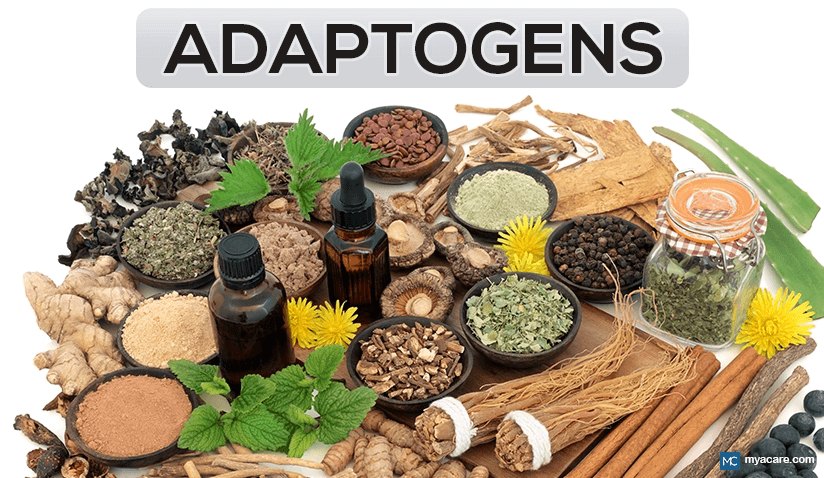CBD, Magic Mushrooms, Psilocybin
Adaptogens: Nature’s Way of Managing Stress
In today’s fast-paced world, stress feels almost inevitable — deadlines, emails, sleepless nights, and emotional burnout can take a toll on both body and mind. But what if nature had already provided tools to help us adapt to stress more effectively?
Enter adaptogens — a unique class of herbs and natural substances that help the body resist and recover from physical, emotional, and environmental stress. While the term may be new to some, adaptogens have been used in Ayurvedic and Traditional Chinese Medicine for centuries. Modern science is now catching up to what ancient healers already knew: adaptogens help the body restore balance.
What Are Adaptogens?
Adaptogens are natural substances, mostly herbs and roots, that enhance the body’s ability to cope with stress and maintain internal equilibrium, also known as homeostasis. Unlike stimulants or sedatives, adaptogens work more subtly and holistically — they “adapt” their function depending on what your body needs.
To qualify as an adaptogen, an herb must:
- Be non-toxic at normal doses
- Help the body resist stressors of all kinds (physical, emotional, chemical)
- Promote balance or normalization of bodily systems (e.g., endocrine, nervous, immune)
How Adaptogens Work in the Body
Adaptogens primarily work by regulating the hypothalamic-pituitary-adrenal (HPA) axis — the system that controls how your body reacts to stress.
When you’re under stress:
- The HPA axis signals the release of cortisol, the main stress hormone.
- High or prolonged cortisol levels can lead to anxiety, fatigue, poor sleep, and even weight gain.
Adaptogens help by:
- Modulating cortisol levels, preventing spikes or crashes
- Supporting neurotransmitter balance, improving mood and focus
- Enhancing cellular energy and immune resilience
Think of them as natural “stress thermostats” — helping your body stay in the optimal performance zone without burning out.
Top Adaptogenic Herbs and Their Benefits
Here are some of the most well-researched and widely used adaptogens:
🌿 Ashwagandha (Withania somnifera)
- Origin: India (Ayurvedic medicine)
- Benefits:
- Reduces anxiety and cortisol levels
- Improves sleep and resilience to emotional stress
- Enhances stamina and brain function
🧪 Studies show ashwagandha can reduce cortisol by up to 30% and significantly improve symptoms of anxiety and insomnia.
🍄 Reishi Mushroom (Ganoderma lucidum)
- Origin: China and Japan (Traditional Chinese Medicine)
- Benefits:
- Calms the nervous system
- Supports immune function
- Promotes deeper sleep and relaxation
Often called the “Mushroom of Immortality,” Reishi is ideal for those feeling wired but tired.
🌾 Rhodiola Rosea
- Origin: Arctic regions of Europe and Asia
- Benefits:
- Boosts energy and mental clarity
- Fights fatigue and brain fog
- Enhances physical performance
Great for people facing mental burnout or needing a non-jittery energy boost.
💪 Holy Basil (Tulsi)
- Origin: India (Ayurveda)
- Benefits:
- Reduces stress-induced inflammation
- Enhances mood and cognitive function
- Supports blood sugar balance
Known as the “Elixir of Life” in Ayurvedic medicine, tulsi offers a gentle but effective calming effect.
🔥 Schisandra Berry
- Origin: China and Russia
- Benefits:
- Increases endurance and vitality
- Protects liver function
- Enhances mental performance under stress
Used by athletes and students alike to maintain energy and focus without overstimulation.
How to Use Adaptogens
Adaptogens are available in various forms:
- Capsules or tablets (standardized for consistency)
- Tinctures and liquid extracts
- Dried powders (to add to smoothies, coffee, or tea)
- Teas and decoctions
🔄 Daily Use vs. Acute Use:
- Some adaptogens (like Ashwagandha or Reishi) are best used daily for long-term stress resilience.
- Others (like Rhodiola) can be taken as needed during particularly stressful periods.
Always start with a low dose and increase gradually as your body adapts.
Are Adaptogens Safe?
Generally, adaptogens are safe for long-term use and have a low risk of side effects. However:
- Always consult a healthcare provider if you are pregnant, breastfeeding, or taking medications.
- Don’t combine multiple adaptogens without guidance — some herbs may have contradictory effects.
Remember: More is not always better. Consistency and moderation are key.
Why Choose Adaptogens Over Stimulants?
Unlike caffeine or pharmaceutical stimulants that force energy and often cause crashes later, adaptogens help your body generate and sustain its own energy more naturally.
Benefits of adaptogens vs. stimulants:
| Adaptogens | Stimulants |
|---|---|
| Gradual, sustainable energy | Quick but short-lived boost |
| Regulate stress hormones | May increase stress hormones |
| Non-habit-forming | Can be addictive or lead to dependence |
| Restore balance | Can worsen imbalance |
Final Thoughts: Stress Less with Nature’s Support
While stress may be part of modern life, burnout doesn’t have to be. Adaptogens offer a gentle, natural way to build your resilience, calm your mind, and support your body’s return to balance.
Whether you’re dealing with long work hours, emotional upheaval, or just the everyday hustle, integrating adaptogens into your wellness routine could be a game-changer for your mental and physical health.

